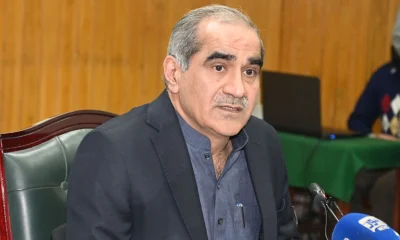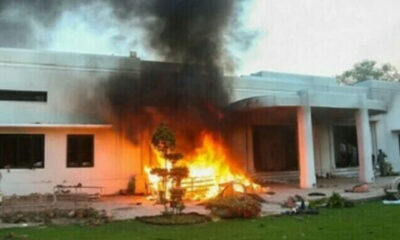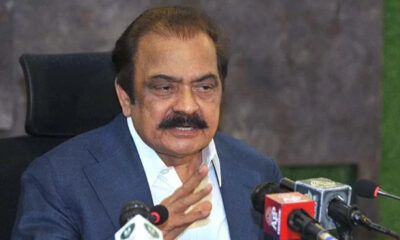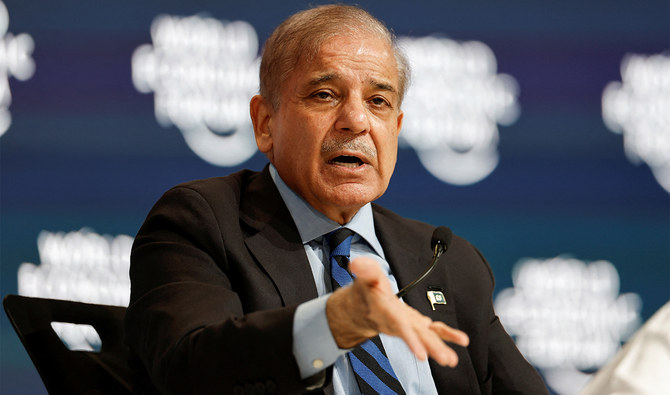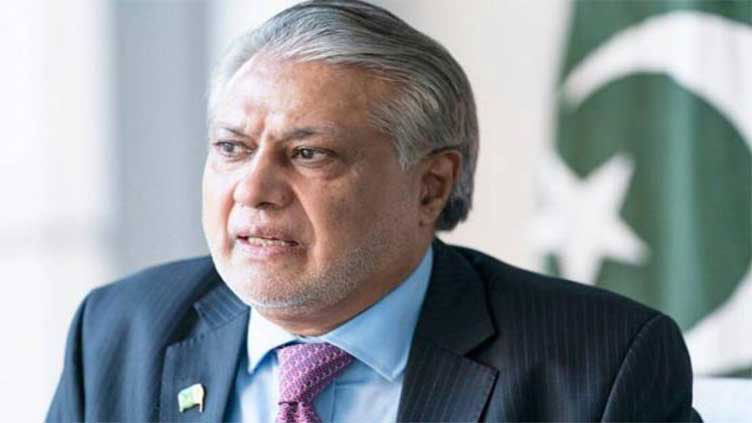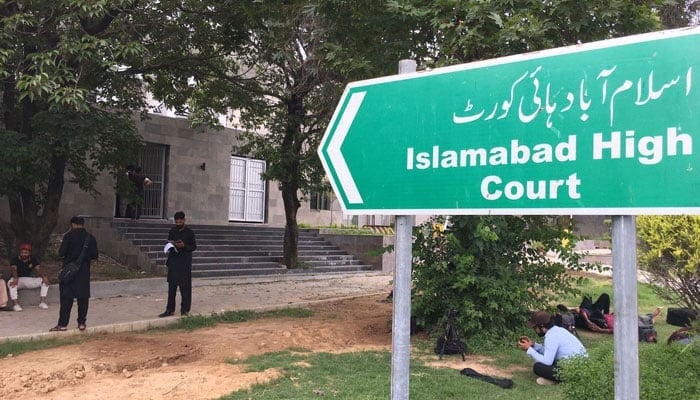In his maiden press conference after assuming the post of Director-General (DG) of the Inter-Services Public Relations (ISPR), Major General Ahmed Sharif Chaudhry Tuesday reiterated the army’s stance that it does not have a leaning towards any political party or ideology as the Pakistan Tehreek-e-Insaf (PTI) calls on the establishment for intervening in politics.
“The Pakistan Army is a national army. All political parties are respectable for us […] but we do not lean towards any political party or ideology,” the ISPR DG said while addressing the presser at the General Headquarters in Rawalpindi.
The army’s spokespersons have repeatedly denied that the military is leaning towards anyone as political parties blame each other for having the establishment’s backing.
“If any army was used to further a specific political ideology anywhere in the world, it led to anarchy,” the ISPR DG said and called upon Pakistan’s political leadership to support the military’s professional thinking.
The ISPR DG added that the government and the military have constitutional and non-political ties — a stance that the army has long stood by. “This non-political relationship should not be given a political colour.”
With several retired army men supporting PTI, the ISPR DG said that the veterans’ organisations should not become political as their purpose was to ensure veterans’ welfare and highlight their issues.
Indian propaganda
During his presser, Major General Chaudhry said India’s propaganda still continues against Pakistan as he slammed the neighbouring nation for ceasefire violations.
The ISPR DG said that India had committed several ceasefire violations along the LoC this year and Pakistan had also taken down six Indian spy quadcopters.
He noted that Pakistan had taken United Nations observers to the Line of Control (LoC) several times, while India had not done the same.
“India’s aggressive designs and baseless allegations cannot change history. India cannot change the historical status of Kashmir. If India plans any adventure, Pakistani forces will give a strong response.”
Chief of Army Staff (COAS) General Asim Munir visited the LoC on his first tour after becoming army chief, he recalled.
“Pakistan has fought the war against terrorism for two decades. Every Pakistani soldier is devoted to faith, piety and jihad in the cause of Allah.”
Referring to Operation Swift Retort in 2019 — in which Pakistan Air Force (PAF) shot down two Indian aircraft inside Pakistani airspace and arrested an Indian pilot on the ground — the military spokesperson said that Pakistan could defend its territory.
Pakistan’s situation holds importance in India’s internal matters, he said, adding that the Indian government talks about Pakistan’s politics also to divert attention from its own problems.
India has been conducting false flag operations and propaganda against Pakistan, he iterated. “Some local elements advance India’s agenda knowingly or unknowingly,” he said without elaborating.
Report to SC based on ‘ground realities’
In response to a question, he said the Ministry of Defence had already given a briefing to the Supreme Court regarding the deployment of troops for elections, which was based on “ground realities”.
The defence ministry briefed the apex court last week on why the government could not provide army personnel for elections in Punjab and Khyber Pakhtunkhwa — and the report has not been made public yet.
The government has repeatedly maintained that the polls cannot take place not only due to the ongoing economic turmoil, but also due to terrorism threats, and with the army busy in counterterrorism operations, it could not allocate security forces for elections.
To a question about what was in the report that the defence ministry had submitted to the top court, Maj Gen Chaudhry said that had there been a need to make the briefing provided to Chief Justice Umar Ata Bandial public, then it would have already been disclosed.
“Those talks were held just between the institutions,” he said.
“It is not in the interest of the nation, country, and the army to push the armed forces into politics,” the military’s spokesperson remarked, a position that his predecessors have also maintained.
The ISPR DG added that it is the government’s prerogative to summon the Pakistan Army under Article 245 for election security or during natural disasters.
Terrorism situation
At the start of the news conference — his first after taking over the post — he said the purpose was to elaborate on the army’s professional activities, including analysing its counterterrorism operations.
“The contacts between the Tehreek-e-Taliban Pakistan (TTP) and Baloch [insurgent] organisations and foreign intelligence agencies has been proven.”
Pakistan’s civil and military agencies took great steps against terrorists, he said.
Giving a breakdown of the menace of terrorism during the current year, he said 436 incidents had occurred, in which 293 people were martyred and 523 injured.
During this period, security forces conducted 8,279 intelligence-based operations (IBOs), in which 1,535 terrorists were killed. Around 70 IBOs were being conducted daily, he added.
“There is no no-go area in Pakistan,” he emphasised. However, terrorists were still disturbing the country’s peace.
The ISPR DG further said that 137 security officials have been martyred so far this year while 117 have been wounded. “The war against terrorism that Pakistan has fought is unprecedented and will continue till the last terrorist is eliminated,” he asserted.
“Terrorist organisations and their facilitators’ have no ideology, religion or faith. They attack mosques, police, religious scholars, mediapersons and citizens,” he said.
He also expressed sadness that the police were blamed for any terrorist incident no matter how small. The police had given countless sacrifices, he said.
Peshawar mosque attackers trained in Afghanistan
Referring to the suicide attack on a mosque in Peshawar in January, which claimed the lives of over 70 people, the ISPR DG said the blast was carried out by the banned militant group Jamaat-ul-Ahrar on the TTP’s orders.
“The attacker belonged to Afghanistan. The facilitators have been arrested. These terrorists were trained in different areas of Afghanistan.”
The masterminds of an attack on the Karachi police chief’s office have also been arrested, he said, adding that the terrorists had taken Rs3 million to carry out the attack.
“No individual or group will be allowed to take the law into their own hands,” he stressed. “Attempts to sabotage CPEC (China-Pakistan Economic Corridor) and other projects are being thwarted. All projects are being provided complete security.
“Different social welfare programs have been announced after slashing the army’s budget. The navy and airforce have also participated in relief activities.”
The ISPR DG said the army had reviewed its expenditures in view of the country’s economic situation. “Petroleum, ration and non-operational movement are being reduced.
“The journey towards permanent peace has begun.”
Border situation
Maj Gen Chaudhry further said around 3141 kilometre-long border has been fenced along the frontiers with Afghanistan and Iran to prevent infiltration of terrorists.
He said 98% border with Afghanistan and 85% with Iran has been fenced, while 85% of forts along the Afghanistan frontier and 33% with Iran have been completed.
He further said that 65% of erstwhile tribal areas have been cleared of land mines.
The ISPR DG added that it isn’t possible to completely seal the border between the two countries, and in the local context, Pakistan is home to over five million Afghan refugees, while the movement of people between the borders of the two states was substantial.
“On an annual basis, around 20,000 people cross the Pak-Afghan borders,” he said, noting that the local authorities were in talks with the interim Afghan government over border management.
Socio-economic uplift
Highlighting measures for the socio-economic uplift of the people, the ISPR DG said that 3,654 projects are being completed at a cost of Rs162 billion in Khyber Pakhtunkhwa, while 95% of the affected population has returned to homes.
He said that around 14,000 people have been given jobs in Pakistan Army and the Frontier Corps under Youth Employment Scheme.
Similarly, over 1,200 students are getting an education in various institutions.
‘Army used to improve agriculture’
The military’s spokesperson added that with the growing population, Pakistan also faces a food security challenge.
“Governments in developed countries also use the army to improve agriculture. In this regard, the federal and provincial governments will decide what Pakistan Army’s role will be,” he said.
The Punjab government has allocated over 45,000 acres of land to the Pakistan Army for a “Corporate Agriculture Farming” project in the shape of a “joint venture” to enhance the crop yield in order to ensure food autarky.
However, officials in the Punjab government were prompted to issue a clarification and provide a rationale for allocation of land to the Pakistan Army.
A senior government official, on the condition of anonymity, said: “From the onset, it should be clear that the ownership of the land remains with the Punjab government.”
“The Pakistan Army is only providing a management structure; the corporate sector and local farmers will also be involved in the cultivation process,” he added.
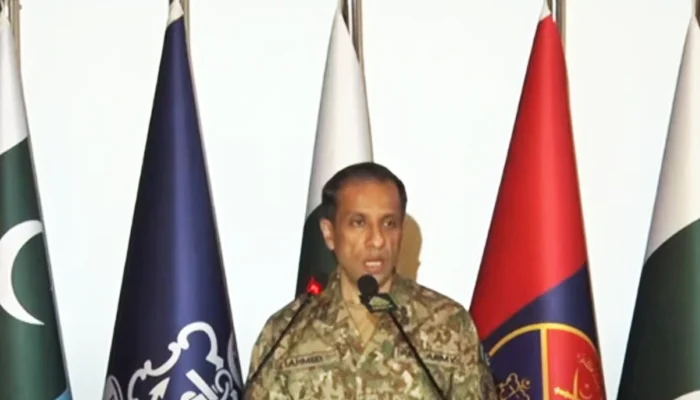

 Latest News16 hours ago
Latest News16 hours ago
 Latest News18 hours ago
Latest News18 hours ago
 Latest News16 hours ago
Latest News16 hours ago
 Latest News16 hours ago
Latest News16 hours ago
 Latest News16 hours ago
Latest News16 hours ago
 Business16 hours ago
Business16 hours ago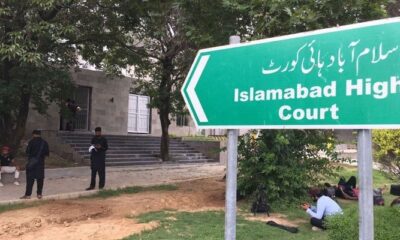
 Latest News16 hours ago
Latest News16 hours ago
 Business17 hours ago
Business17 hours ago


